by Founder and Content Director Caroline Tremblay
Two babies, a small business, and a pandemic later, I finally got to attend Keene, New Hampshire’s Radically Rural summit for the first time. I have written about this event locally, had articles about its key themes published nationally, and generally told everyone I know they should go. But until now, I hadn’t had the personal experience to back it up.
I’m here to tell you…You should DEFINITELY go!
For me, attending RR, which is hosted by The Keene Sentinel and the Hannah Grimes Center for Entrepreneurship made sense. I’m big into rural, big on community storytelling, and there was plenty for me to learn from any of the summit’s seven “tracks,” but especially the Community Journalism one. Others include Arts & Culture, Clean Energy, Entrepreneurship, All in for Health, Land & Community, and Main Street.
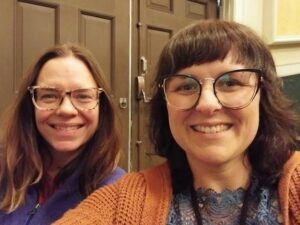
It’s certainly been a while since I attended a conference, but this one was thoughtfully approached in a way I’ve never experienced. Sitting under the gold and green embellishments of Keene’s historic Colonial Theatre (where I remember eating buttery popcorn and seeing Beauty and the Beast for the first time), the summit opened with gratitude and a gorgeous poetry reading by Shanta Lee.
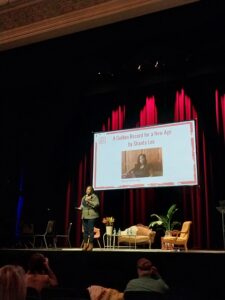
She asked what would go on our Golden Record (think vinyl) if America were to shoot another into space as they did in 1977. How different is America now? What would this country and that album sound like?
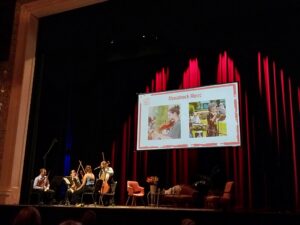
Monadnock Music followed these big questions with incredible classical sound. I sat in the dim lights, sipping hot tea, not needing to be anywhere else for the first time in…well forever. I breathed and looked around at everyone—so much excitement in those staggered, velvety seats.
Choosing Rural
Tony Pipa of the Brookings Institute led the keynote. His New York Times article, “A Policy Renaissance Is Needed for Rural America to Thrive” has put his voice at the forefront of the rural conversation in the U.S. I loved his idea of being “rural by choice,” which is something I realized I’ve done.
When I grew up in Southern, New Hampshire, I was sure there was “nothing to do!” My poor parents. How many times did they listen to that bologna and how must they have felt when I left for Ireland right after high school graduation? Then Boston, where I thought I’d earn a degree and become a big-time editor? Or when I landed in Fitchburg to get my teaching credentials and change the face of education?
When I ended up buying my first house in Fitzwilliam in my early 20s, it seemed like maybe I just came home by mistake—a little defeat mixed with celebration. But as I hiked the rail trail just down the road every day with my dog, got a job with the local paper, and met more and more people from the local food and arts scene, it turned out to be a choice.
Bigger than Before
Now this choice is driven by much more than my own vision. It’s for my kids. Because as it turns out, this place has a blend of something unusual I haven’t found anywhere else. And as it turns out, community is a verb. As a grown-up, I now realize community is an action we have to engage in to feel like we’re a part of it. So that’s what I’m doing, through story, giving back, and simply listening to my neighbors about what matters to them.
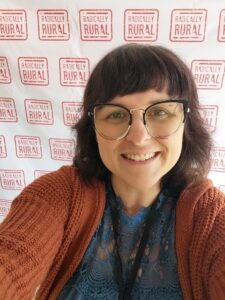
Radically Rural cemented that choice for me. I felt a sense of belonging that I haven’t felt…maybe ever? And to hear people from all over the country giddy about their experience here in Keene, New Hampshire, its hipness, its intention, its togetherness—that was a reminder that none of us can take this for granted.
Hope as a Mantra
Another voice from the keynote really stuck with me. It came from Gloria Dickerson of Mississippi, who is founder and CEO of We2gether Creating Change. She too returned to her hometown, but hers faced incredible poverty, lack of trust, and even despair. Through her listening (particularly to the town’s youth), commitment, and a good dose of just being real with people, she has created hope there.
And that was her message. She talked about how people will say, “Hope isn’t a strategy.” But her next point was that there is no strategy without hope. That’s what I’m taking with me as a mantra: Hope IS the strategy.
I have a million other ideas and snippets swyped in my phone as I listened in on session after session. Each had practical, creative strategies for growing local storytelling, supporting community organizations, and structuring policy. The theme was that ideas need to be both flexible and responsive to the needs of individual rural places, which are all so unique.
More Unicorns than You Know
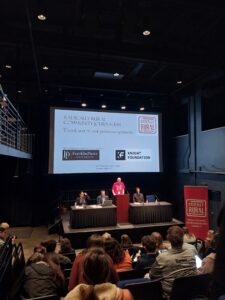
While they may be different, I loved what journalist Tristan Scott said during his panel discussion. He admitted he was attending with it in his mind that his news organization in Montana was kind of a unicorn. But what he realized at RR is: “There are many, many unicorns in this world and this is such a wonderful opportunity to cross horns and exchange ideas.”
So heck yeah to the power of ideas and what happens when we pause to share them. I can’t wait to register for next year’s summit, and I hope you’ll join me. If you’re reading this from further afield (or maybe you’re local and could use a little stay-cay), anyone who registers by Dec will be entered to win two nights of hotel accommodations. Ooo la la! See you at the summit!
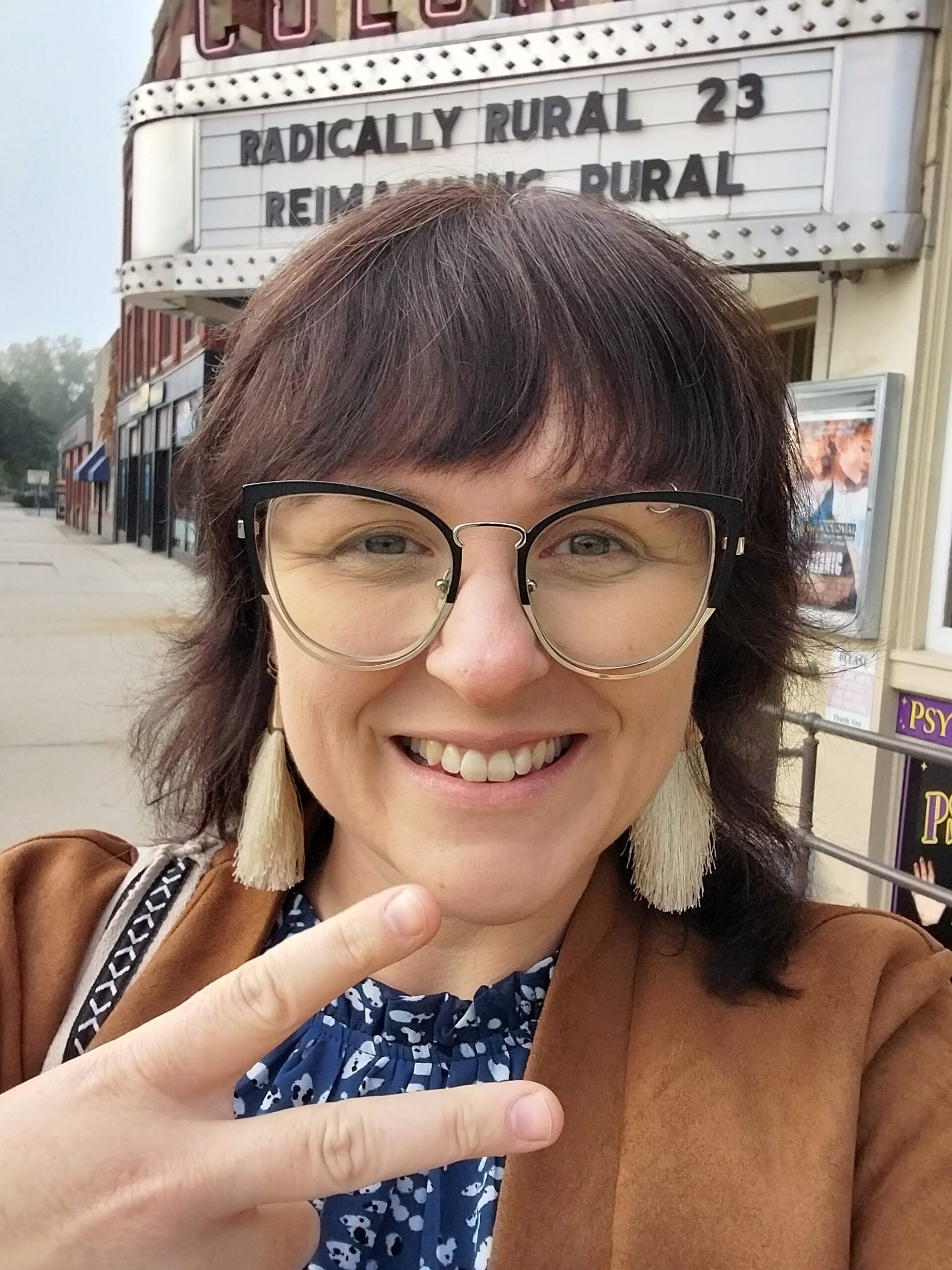
Thought provoking reflections on a thought provoking day! So glad the summit nourished your soul Caroline!
Thank YOU for helping to make it happen. It was such a valuable experience.